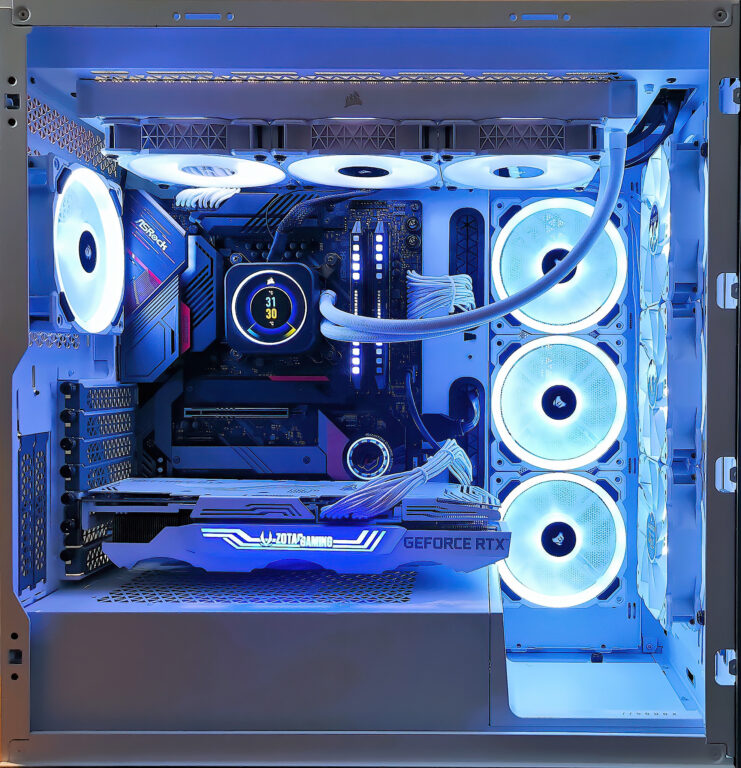TSSDR TEST BENCH AND PROTOCOL
CFExpress Card testing at TSSDR differs slightly, depending on whether we are looking at consumer or enterprise storage media. For our Manfrotto Professional 128GB CFExpress Type B Card testing today, our goal is to test in a system that has been optimized with our SSD Optimization Guide.
For this Test Bench, the CPU C-States, Enhanced Intel SpeedStep Technology (EIST) and Intel Speedshift (P-States) have not been disabled. As you will see below, the system is also bumped to 5.1GHz with memory at full speed in its XMP 2 profile.
The components of this Test Bench are detailed below. All hardware is linked for purchase and product sales may be reached by a simple click on the individual item.
INTEL Z690 PCIE 5.0 COMPONENTS
| PC CHASSIS: | Corsair 5000X RGB White Tempered Glass Chassis |
| MOTHERBOARD: | ASRock Z690 Phantom Gaming PG Velocita Gen 5 |
| CPU: | Intel 12th Gen Core i9-12900K |
| CPU COOLER: | Corsair Hydro Series H150i Capellix White |
| POWER SUPPLY: | Corsair RM850x 80Plus White |
| GRAPHICS: | ZOTAC GeForce RTX 3080 Trinity White |
| MEMORY: | Corsair Dominator Platinum RGB DDR5-5200 64GB |
| STORAGE: | Sabrent Rocket 4 Plus Gen 4 4TB NVMe SSD |
| KEYBOARD: | Corsair K70 RGB Mk. 2 SE White Gaming |
| MOUSE: | Corsair M65 RGB Elite FPS Gaming |
| MONITOR: | Samsung 34″ 1440p WQHD Ultrawide Gaming |
BENCHMARK SOFTWARE
The software in use for today’s analysis is typical of many of our reviews and consists of Crystal Disk Info, ATTO Disk Benchmark, Crystal Disk Mark, Anvil’s Storage Utilities, AJA, TxBench, as well as Sustained Disk Transfer, Temperature and True Data Transfer Rate Testing. Our selection of software allows each to build on the last and to provide validation to results already obtained.
CRYSTAL DISK INFO VER. 8.15.2 X64
Crystal Disk Info is a great tool for displaying the characteristics and health of storage devices. It displays everything from temperatures, the number of hours the device has been powered, and even to the extent of informing you of the firmware of the device.
In posting this Crystal DiskInfo result, it is our practice of identifying the highest recorded temperature reached during our test regimen. 57°C is a very low temp…something we never really expected.
 The SSD Review The Worlds Dedicated SSD Education and Review Resource |
The SSD Review The Worlds Dedicated SSD Education and Review Resource | 

